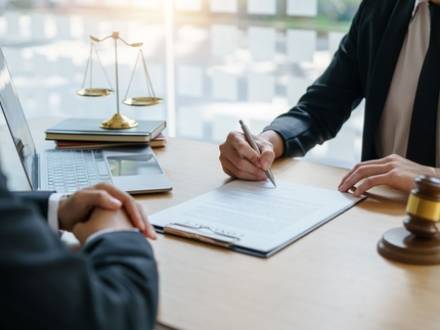What Happens to Repossessed Property in Bankruptcy?
 When a person fails to pay certain secured debts, creditors may seize that person’s property in a process called repossession. Sometimes a lender might repossess a car or a boat if its owner fails to pay it off; when a house is repossessed, it is called "foreclosure." The creditor can then liquidate the property by selling it and make up for the outstanding debt.
When a person fails to pay certain secured debts, creditors may seize that person’s property in a process called repossession. Sometimes a lender might repossess a car or a boat if its owner fails to pay it off; when a house is repossessed, it is called "foreclosure." The creditor can then liquidate the property by selling it and make up for the outstanding debt.
But what happens if the borrower files for bankruptcy? Bankruptcy can affect repossession in various ways, depending on whether it is Chapter 7 or Chapter 13. To learn how bankruptcy might affect your property, consult a Texas bankruptcy attorney with knowledge about repossession.
How Does Chapter 7 Bankruptcy Affect Repossession?
In Chapter 7 bankruptcy, some of the borrower’s assets may be liquidated and used to pay off debts. Here is how Chapter 7 can affect the repossession of the filer’s property:
-
Automatic stay: When a person files for bankruptcy, it triggers a legal function called an automatic stay. This places an immediate hold on collection efforts by creditors, who will be exposed to legal action if they continue to try to collect on their debts before the bankruptcy case is closed. However, the automatic stay only applies to assets that have not yet been repossessed.
-
Redemption: In Chapter 7 bankruptcy, the debtor may have the option of redeeming property by paying off the current market value in a lump sum to the creditor. This would allow the debtor to keep the property and significantly reduce the monthly payments.
-
Reaffirmation: This is a less common method where the borrower signs a contract with the creditor reaffirming the debt and promising to pay back the loan even through bankruptcy. In exchange for this reaffirmation, the creditor allows the borrower to keep the property.
-
Personal property exemptions: Texas law allows a bankruptcy filer to keep ownership of personal assets up to $50,000. Anything over that amount can be subject to liquidation by creditors.
How Does Chapter 13 Bankruptcy Affect Repossession?
Chapter 13 bankruptcy is in some respects simpler than Chapter 7 because it involves the borrower paying off his or her debts over the next three to five years. Since the debts are being repaid according to a repayment plan, creditors have little reason to repossess the property. However, in addition to automatic stay, Chapter 13 can still impact repossession in the following ways:
-
If property was already repossessed, a judge may order the creditor to return the property in exchange for the borrower paying off the debt in the repayment plan.
-
For some assets, the court may allow a cramdown. A cramdown reduces the amount owed on an asset to its current market value. If a debtor has a cramdown on a vehicle that was purchased at $20,000 but has depreciated 50 percent, for example, he or she only needs to pay $10,000 to keep the car. Cramdowns are only available for vehicles that were purchased over 910 days ago or other assets purchased more than a year ago.
Contact a New Braunfels, TX Bankruptcy Attorney
Repossession can be a crushing experience, but bankruptcy offers several options to avoid it. Find out how bankruptcy will affect you by consulting the Law Offices of Chance M. McGhee. We will walk you personally through every step of the bankruptcy process and help you navigate through your options. Schedule a free consultation with a San Antonio, TX bankruptcy lawyer by calling 210-342-3400 today.






